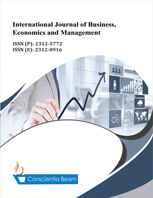An Essay on the Political Economy of Fiscal Policy Making in Pakistan
Abstract
This paper investigates the political economy of fiscal policy making in Pakistan, and analyses the key political and economic factors that potentially affect the fiscal policy making and its implementation. The paper argues that the role of the state institutions is paramount for economic growth and social development in Pakistan. While reviewing the trends of public expenditures and revenue the paper shows that the performance of the economy on average has not been abysmal though social development remained poor in terms of pervasive poverty and income inequality in spite of having a big public sector. The paper figures that the key reason of this contrast is the political economy structure of Pakistan, particularly the fiscal policy, which is largely designed to promote and protect the vested interests of an elite group and dominant province(s) within the federation. Finally, while explaining the key participants of fiscal policy making the paper argues that the military as a strong institution plays a primary role, albeit in uncoordinated and authoritarian manner, to reorient the fiscal policy in order to safeguard and promote its institutional interest by directing disproportionately excessive public resources at the expense of greater social and economic development of Pakistan.

